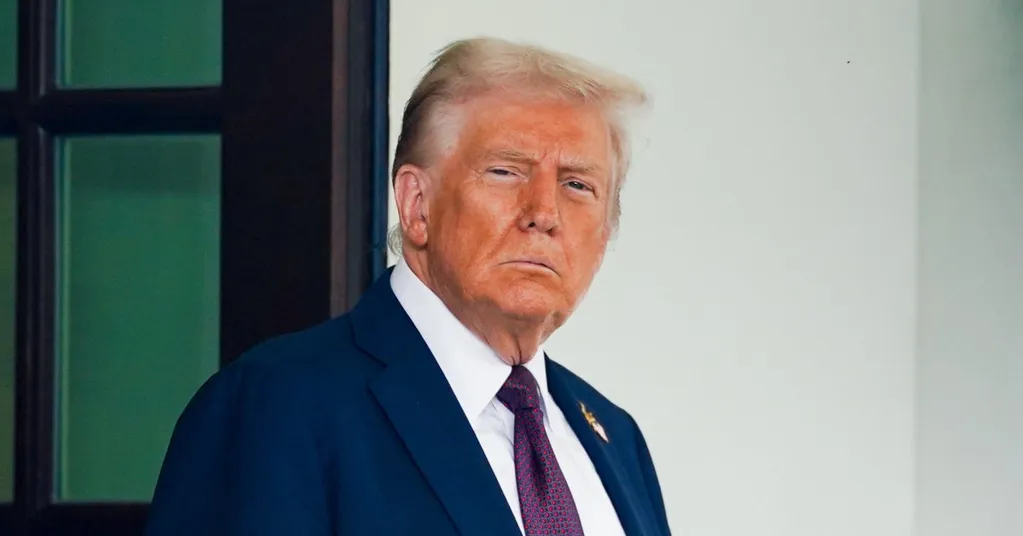WASHINGTON -- A federal government shutdown appears likely this week after President Donald Trump and the top two Democrats in Congress failed to reach a spending agreement during a high-stakes meeting at the White House on Monday.
"There was a frank and direct discussion with the president of the United States, and Republican leaders, but significant and meaningful differences remain," House Democratic leader Hakeem Jeffries (D-N.Y.) told reporters after the meeting.
"It's up to the Republicans whether they want to shut down or not," Senate Democratic leader Chuck Schumer (D-N.Y.) said.
Trump's sit-down on Monday with Jeffries, Schumer, House Speaker Mike Johnson (R-La.) and Senate Majority Leader John Thune (R-S.D.) was his first since becoming president in January. He canceled a meeting with Democrats last week, declaring that no meeting could possibly be productive.
Democrats want Republicans to roll back their $1 trillion cut to Medicaid and also support an extension of expanded tax credits for people who get their health insurance through the Affordable Care Act, which are due to expire at the end of this year. They called the expiration of those subsidies, which Democrats initially passed during the COVID-19 pandemic, a "health crisis" that would result in insurance premiums skyrocketing for 24 million Americans and 4 million losing their coverage entirely.
Before the meeting on Monday, Jeffries insisted Democrats were earnestly seeking a bipartisan policy negotiation -- and that a shutdown would be Republicans' fault.
"We've made clear that we are willing to find a bipartisan path forward on a spending bill negotiated by Democrats and Republicans, but it has to meet the needs of the American people," Jeffries said. "Republicans control the House and the Senate, and there's a Republican president. If the government shuts down, it's because Republicans want to shut the government down."
Still, several Republicans have seemed open to some of Democrats' demands. Thune said Sunday there's "potentially a path forward" on extending Obamacare premium subsidies at a later date with certain reforms.
"We can have that conversation. But before we do, release the hostage. Let's have a conversation. I'm certainly open to that. I think we all are," Thune said during an interview on NBC's "Meet the Press."
But many Republicans and conservative groups oppose extending the subsidies, arguing that government support for ACA enrollees ought to end now that the pandemic is over. Extending the subsidies for 10 years would cost an estimated $350 billion, but some Senate Republicans have floated a possible compromise of a two-year extension with restrictions on who could apply.
It's unclear if the mere hint of a future negotiation over the Obamacare subsidies will mollify enough Senate Democrats to break with their party and vote to avert a shutdown ahead of the Sept. 30 funding deadline. The Senate will vote again on Monday evening on a House-passed bill funding the government until November that includes no health care provisions.
"The ball is in their court," Thune said Sunday. "There is a bill sitting in the Senate right now. This decision, in my judgment, is up to a handful of Democrats. We need eight Democrats to pass it through the Senate."
